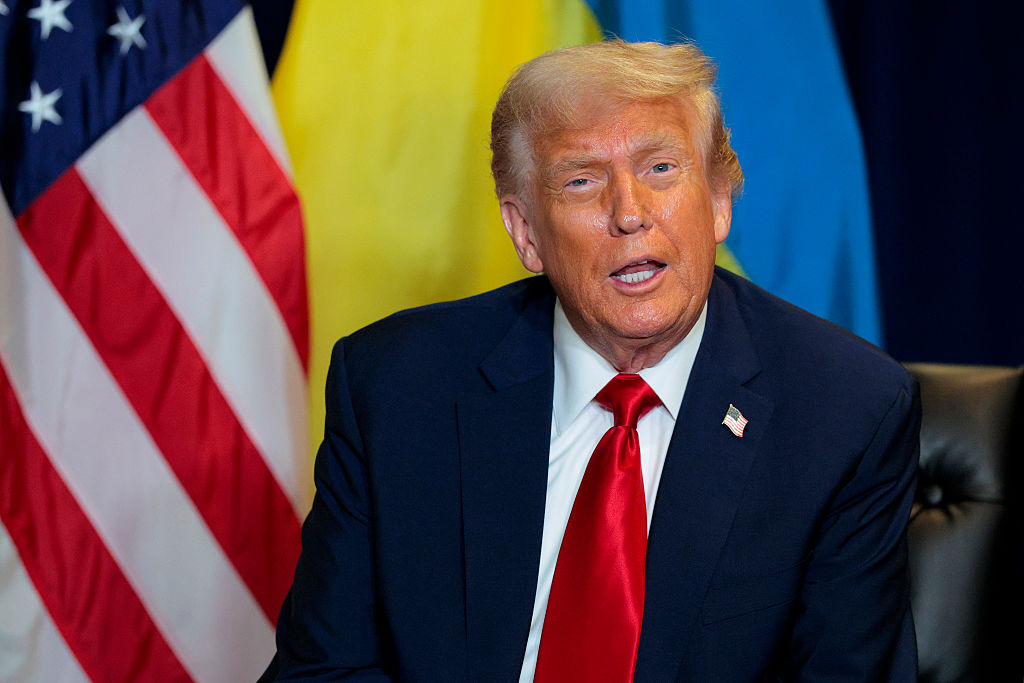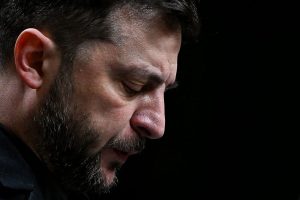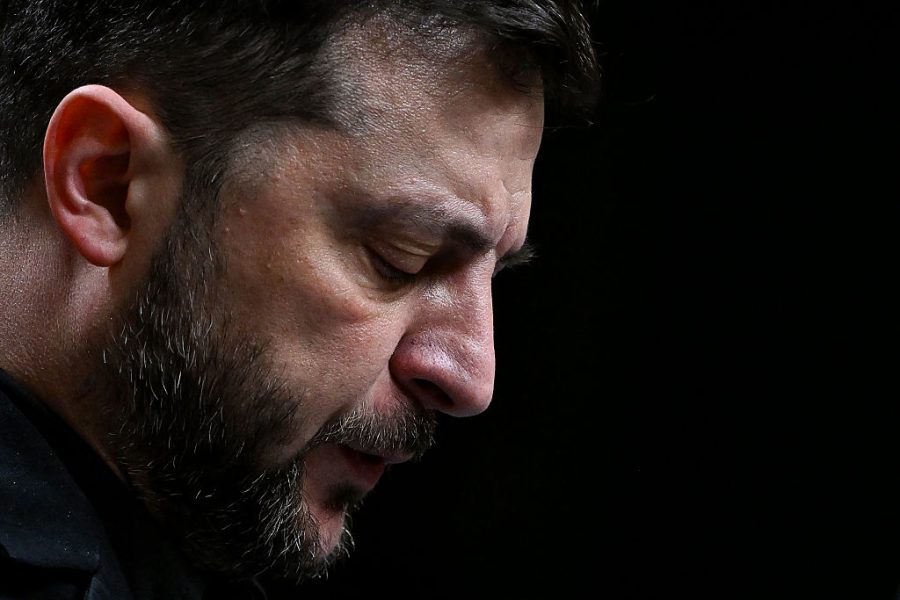President Trump has once again played the global foreign-policy commentariat for fools. They have taken a startling statement from Trump’s Truth social-media account on Tuesday as a sign of a new policy – or at least a new attitude – toward the Russia-Ukraine war. Yet what Trump actually wrote says nothing of the sort.
If Trump really were newly committing himself to Ukraine, why would say, as he’s so often said before, “I wish both countries well”? One country has invaded the other; wishing one of them well means wishing defeat on the other. Wishing them both well indicates indifference.
At a stretch, one might choose to believe Trump meant his kind regards to both sides as a mere pleasantry, or perhaps he meant that sub specie aeternitatis he wishes the people of both nations well. His record belies that interpretation. So does the rest of what he wrote Tuesday.
Trump’s Truth statement came on the heels of a meeting with Ukraine’s President Zelenskyy in New York. The Ukrainian leader accentuated the positive: “Trump is a game-changer by himself,” he said. Yet Trump’s words describe a very familiar game, played by the rules Trump has followed all along.
If anything, he has reiterated more forcefully before that Ukraine is Europe’s affair, not America’s. Look closely. “I think Ukraine, with the support of the European Union, is in a position to fight and WIN all of Ukraine back in its original form.”
That means if Ukraine falls short of that optimistic conclusion, it will be the EU’s fault, along with Zelenskyy’s – but not America’s.
“With time, patience, and the financial support of Europe and, in particular, NATO, the original Borders from where this War started, is very much an option.”
The US is, of course, part of NATO, but near the end of the post, Trump adds this in clarification: “We will continue to supply weapons to NATO for NATO to do what they want with them.”
That hardly sounds like the United States asserting its leadership role in the alliance to direct greater aid to Ukraine. It’s instead a restatement of an existing policy (“we will continue”) and a reminder that Trump sees Europe’s NATO members as being responsible for their own decisions (“do what they want with them”) and whatever results they get – or don’t get.
Trump emphasized to Vladimir Putin that his war is a failure and an economic catastrophe, and the administration’s disappointment with Russia’s intransigence in prolonging the war is no secret. Despite what his detractors may believe, Trump did not come back into office intent upon delivering Ukraine to Putin. If a negotiated peace, or at least armistice, is not available, Trump is quite comfortable keeping up military aid of the sort the US has been providing all along. Yet his Truth post suggests even that will increasingly be framed in terms of Europeans’ self-responsibility. This is their war, and theirs to end, where Trump is concerned.
NATO’s Eurocrats should think twice before popping the champagne. If Trump sounds more sanguine than ever before about total victory for Ukraine, what will he say about Europe, and NATO, if that happy ending doesn’t come to pass? Will he say Europe, including NATO, lost a war that should have been easy to win and thereby proved its uselessness – proved, in fact, the need for regime-change in Europe’s own capitals and for America to slash its underwriting of the Continent’s defense? Trump has now set extremely high expectations for others to meet. You can be sure he hasn’t done so unwittingly.
Trump doesn’t want to see Ukraine utterly crushed by Russia. Yet he also doesn’t want NATO to be America’s business rather than Europe’s. Business is about profit, and in Trump’s eyes, NATO is unprofitable. For now the president is providing charity; he’s a generous man. But if NATO’s European members can’t realize the returns that Trump says are attainable, he’s going to curtail his giving.


























Leave a Reply